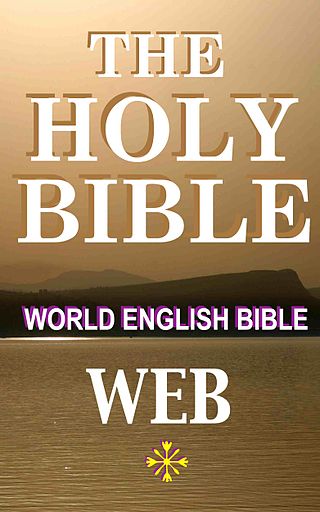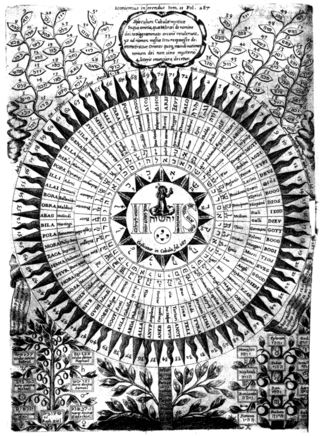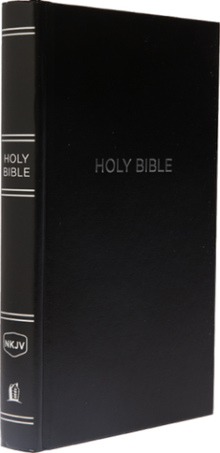
Judaism considers some names of God so holy that, once written, they should not be erased: יהוה, אֲדֹנָי, אֵל, אֱלֹהִים, שַׁדַּי, and צְבָאוֹת ; some also include I Am that I Am. Early authorities considered other Hebrew names mere epithets or descriptions of God, and wrote that they and names in other languages may be written and erased freely. Some moderns advise special care even in these cases, and many Orthodox Jews have adopted the chumras of writing "G-d" instead of "God" in English or saying Ṭēt-Vav instead of Yōd-Hē for the number fifteen or Ṭēt-Zayin instead of Yōd-Vav for the Hebrew number sixteen.
Jah or Yah is a short form of the tetragrammaton יהוה (YHWH), the personal name of God: Yahweh, which the ancient Israelites used. The conventional Christian English pronunciation of Jah is, even though the letter J here transliterates the palatal approximant. The spelling Yah is designed to make the pronunciation explicit in an English-language context, especially for Christians who may not use Hebrew regularly during prayer and study.

The World English Bible (WEB) is an English translation of the Bible freely shared online. The translation work began in 1994 and was deemed complete in 2020. Created by Michael Paul Johnson with help from volunteers, the WEB is an updated revision of the American Standard Version from 1901.

The New American Standard Bible is a translation of the Bible in contemporary English. Published by the Lockman Foundation, the complete NASB was released in 1971. New revisions were published in 1995 and 2020. The NASB relies on recently published critical editions of the original Hebrew, Aramaic, and Greek texts. It is known for preferring a literal translation style that generally preserves the structure of the original language when possible, rather than an idiomatic style that attempts to match natural English usage.

There are various names of God, many of which enumerate the various qualities of a Supreme Being. The English word god is used by multiple religions as a noun to refer to different deities, or specifically to the Supreme Being, as denoted in English by the capitalized and uncapitalized terms God and god. Ancient cognate equivalents for the biblical Hebrew Elohim, one of the most common names of God in the Bible, include proto-Semitic El, biblical Aramaic Elah, and Arabic ilah. The personal or proper name for God in many of these languages may either be distinguished from such attributes, or homonymic. For example, in Judaism the tetragrammaton is sometimes related to the ancient Hebrew ehyeh. It is connected to the passage in Exodus 3:14 in which God gives his name as אֶהְיֶה אֲשֶׁר אֶהְיֶה, where the verb, translated most basically as "I am that I am" or "I shall be what I shall be", "I shall be what I am" In the Hebrew Bible, YHWH, the personal name of God, is revealed directly to Moses. Correlation between various theories and interpretation of the name of "the one God", used to signify a monotheistic or ultimate Supreme Being from which all other divine attributes derive, has been a subject of ecumenical discourse between Eastern and Western scholars for over two centuries. In Christian theology the word is considered a personal and a proper name of God. On the other hand, the names of God in a different tradition are sometimes referred to by symbols. The question whether divine names used by different religions are equivalent has been raised and analyzed.

The New King James Version (NKJV) is a translation of the Bible in contemporary English. Published by Thomas Nelson, the complete NKJV was released in 1982. With regard to its textual basis, the NKJV relies on a modern critical edition for the Old Testament, while opting to use the Textus Receptus for the New Testament.

The New Jerusalem Bible (NJB) is an English-language translation of the Bible published in 1985 by Darton, Longman and Todd and Les Editions du Cerf, edited by Benedictine biblical scholar Henry Wansbrough, and approved for use in study and personal devotion by members of the Catholic Church and approved also by the Church of England.

Modern English Bible translations consists of English Bible translations developed and published throughout the late modern period to the present.

Jehovah is a Latinization of the Hebrew יְהֹוָהYəhōwā, one vocalization of the Tetragrammaton יהוה (YHWH), the proper name of the God of Israel in the Hebrew Bible/Old Testament. The Tetragrammaton יהוה is considered one of the seven names of God in Judaism and a form of God's name in Christianity.
In contrast to the variety of absolute or personal names of God in the Old Testament, the New Testament uses only two, according to the International Standard Bible Encyclopaedia. From the 20th century onwards, "a number of scholars find various evidence for the name [YHWH or related form] in the New Testament.
Accordance is a Bible study program for Apple Macintosh and iPhone, and now Windows and Android, developed by OakTree Software, Inc.
Several Spanish translations of the Bible have been made since approximately 700 years ago.

The Tetragrammaton is the four-letter Hebrew theonym יהוה, the name of God in the Hebrew Bible. The four letters, written and read from right to left, are yodh, he, waw, and he. The name may be derived from a verb that means "to be", "to exist", "to cause to become", or "to come to pass". While there is no consensus about the structure and etymology of the name, the form Yahweh is now accepted almost universally among Biblical and Semitic linguistics scholars, though the vocalization Jehovah continues to have wide usage.

The term Catholic Bible can be understood in two ways. More generally, it can refer to a Christian Bible that includes the whole 73-book canon recognized by the Catholic Church, including some of the deuterocanonical books of the Old Testament which are in the Greek Septuagint collection, but which are not present in the Hebrew Masoretic Text collection. More specifically, the term can refer to a version or translation of the Bible which is published with the Catholic Church's approval, in accordance with Catholic canon law.

The Sacred Scriptures Bethel Edition (SSBE) is a Sacred Name Bible which uses the names Yahweh and Yahshua in both the Old and New Testaments. It was produced by Jacob O. Meyer, based on the American Standard Version of 1901 and it contains over 977 pages. The Assemblies of Yahweh printed 5,500 copies of the first edition in 1981. It is also used by some members of the Sacred Name Movement.

Sacred Name Bibles are Bible translations that consistently use Hebraic forms of the God of Israel's personal name, instead of its English language translation, in both the Old and New Testaments. Some Bible versions, such as the Jerusalem Bible, employ the name Yahweh, a transliteration of the Hebrew tetragrammaton (YHWH), in the English text of the Old Testament, where traditional English versions have LORD.

The Bible usually uses the name of God in the singular, generally using the terms in a very general sense rather than referring to any special designation of God. However, general references to the name of God may branch to other special forms which express His multifaceted attributes. The Old Testament/Hebrew Bible reveals YHWH as the personal name of God, along with certain titles including El Elyon and El Shaddai. Jah or Yah is an abbreviation of Jahweh/Yahweh, and often sees usage by Christians in the interjection "Hallelujah", meaning "Praise Yah", which is used to give God glory. In the New Testament the terms Theos, Kyrios and Patēr are additionally used to reference God.
Translation of the Bible into Malayalam began in 1806. Church historians say Kayamkulam Philipose Ramban, a scholar from Kayamkulam, translated the Bible from Syriac into Malayalam in 1811 to help the faithful get a better understanding of the scripture. The Manjummal translation is the first Catholic version of the Bible in Malayalam. This is the direct translation from Latin. The four Gospels and the Acts of the Apostles were translated by the inmates of the Manjummal Ashram, Fr. Aloysius, Fr. Michael and Fr. Polycarp. The Pancha Granthy came out from Mannanam under the leadership of Nidhirikkal Mani Kathanar in 1924. The Catholic New Testament was published in full in 1940, and has influenced development of the modern language.

Acts 26 is the twenty-sixth chapter of the Acts of the Apostles in the New Testament of the Christian Bible. It records the period of Paul's imprisonment in Caesarea. The book containing this chapter is anonymous, but Holman states that "uniform Christian tradition affirms that Luke wrote both" this book as well as the Gospel of Luke, as supported by Guthrie based on external evidence.

The Christian Standard Bible ([[CSB]]) is a translation of the Bible in contemporary English. Published by Holman Bible Publishers in 2017 as the successor to the Holman Christian Standard Bible (HCSB), the CSB "incorporates advances in biblical scholarship and input from Bible scholars, pastors, and readers to sharpen both accuracy and readability." The CSB relies on recently published critical editions of the original Hebrew, Aramaic, and Greek texts.















